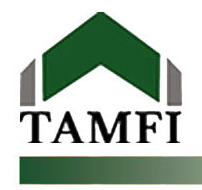
Micro Finance Institutions(MFIs) asked to adopt renewable energy financing models
There is a high demand for renewable energy production and consumption across Tanzania, which microfinance institutions(MFIs) can unlock, as a way of addressing energy poverty, and creating a new revenue niche.
That was the general assertion by workshop participants organised by the Tanzania Association of Microfinance Institutions (TAMFI) senior-level managers of MFIs in Tanzania, geared on the need to start offering loan products based on energy needs for the poor, micro and small enterprise.
TAMFI CEO Mrs Winnie Terry was emphatic that the financial sector in Tanzania and microfinance institutions (MFIs) in particular, need to start addressing the need of reducing energy poverty through appropriate financing mechanisms.
She noted that most of the enterprises in Tanzania that need sustainable energy like solar are micro and small in nature.
“To deal with energy poverty end users, who more often than not are power, need the services of microfinance institutions that can lend them purchase renewable energy equipment,” she noted.
She said that TAMFI was aware that such enterprises (micro and small) faced many challenges in accessing finance. She lamented that there has been a low domestic appetite to fund decentralized energy models targeted at rural areas.
She noted that TAMFI was determined to end the unfamiliarity among financial institutions on renewable energy financing, thus the need for such a workshop.
The workshop took place in Dar es Salaam on 28th August 2020. It covered themes such as enabling environment, understanding clients needs and developing products, technology for productive use, potential business models and partnership development.
According to Michale Onesmo, the convenor of the workshop there is a high demand of smaller systems across all renewables.
“This suggests either, MFIs market is still low or their renewable energy products and services are limited,” he noted, adding that the quality of products and range of technologies remain very low.
He was optimistic that the current business environment is ripe for MFI to tap into financing renewables and create a huge impact.
“The most important aspect is the right-sizing renewable energy technologies with productive use, business model and economic activities. Coupled with offering credit to support productive use improves MFIs credibility before stakeholders, its clients and market, he noted.
He advised MFIs to develop technology, lending and end-user manuals to aid awareness, product understanding and potential technologies to support productive use.
The workshop participants called for greater partnerships between TAMFI and TAREA in the implementation of the renewable energy uptake drive.
It was also agreed TAMFI should facilitate partnerships between MFIs and other important stakeholders in the financing and renewable value chain.
The workshop was attended by the representatives of Jamii Impact; Manie/Vicoba; Tanerela; Shimuno Microfinance Ltd; Makazi Bora Finance and Kopafasta/Data Vision.
Others included Kopafasta/Data Vision, Engishon Microfinance, Makazi Bora Finance and
Brac Finance
Other MFIs represented included
Sharp Finance
Vicoba Sustainable
Ringi Finance
Jamii Impact Ltd
Tujijenge Tz Finance
Caritas Dar Es Salaam
Misana Microfinance
Makini Microfinance Ltd
Hp Microfinance
Batandewa Finance
Ibradream Finance
Jujijenge Afrika
Mtoni Lutheran Saccos
Enokwe Financial Ltd
Ibradream Financial Services Ltd
Vicoba Sustainable
Kopafasta/Data Vision
Tujijenge Tz Finance
Engshon Finance
Tujijenge Tz Finance
Sisa Credit
Tujijenge Tz Finance
Romalu Microfinance
Tujijenge Tz Finance
Sharp Financial Service
Maendeleo Bank
Caritas Dar Es Salaam
Caritas Dar Es Salaam
Ring Microfinance
Vicoba Sustainable
Mucoba
Bidii Microfinance
Yetu Microfinance Bank
Envotech/Vicoba Sustainable
